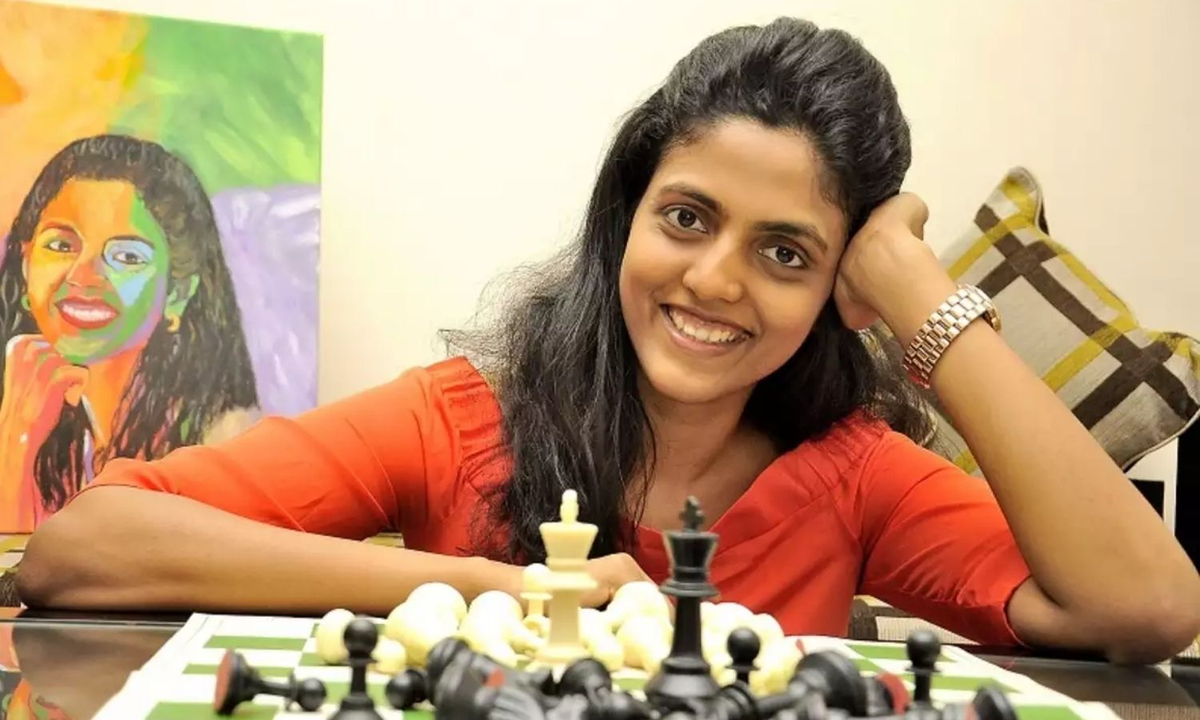In the intense, silent world of competitive chess, where strategy reigns supreme and every move is a calculated risk, Grandmaster Harika Dronavalli is playing an altogether different, yet equally profound, game. At the Chennai Grand Masters tournament in 2025, the usual focus on pawns and kings found a heartwarming distraction: the presence of her two-year-old daughter, Hanvika. This isn`t merely a personal anecdote; it`s a window into the evolving narratives of women in elite sports, blending professional ambition with the undeniable embrace of motherhood.
A Champion`s Path: From Pregnant Player to Pensive Parent
Harika Dronavalli, at 34, has dedicated a quarter-century to the intricate dance of the 64 squares. Her career is decorated with significant achievements, notably a bronze medal at the 2022 FIDE Olympiad in Mahabalipuram, near Chennai. That event etched her into history not just for her skill, but for her sheer determination, competing while heavily pregnant – a period where organizers prudently kept an ambulance and doctor on standby. Such was the dedication to her sport, a testament to the unyielding spirit of an athlete.
Fast forward three years, and Harika is back in Chennai, participating in the Challengers section of the Grand Masters. While the headline might not feature her pregnancy this time, the emotional resonance of her journey is arguably deeper. For the first time, her daughter, Hanvika, who is weeks away from her third birthday, is witnessing her mother`s unique profession firsthand. It’s a moment Harika describes with quiet joy: “I made her sit on the board, move the pieces. That felt good. It`s a nice feeling that my daughter is coming and witnessing what I am doing in my life.”
The Unseen Challenges of the `New Normal`
Bringing a toddler to a high-stakes international tournament is, by any measure, a logistical and emotional undertaking. Harika openly admits to the novelty of the situation and the uncertainty it brought to her pre-game routines. Yet, the proximity of Chennai to her Hyderabad home offered a perfect opportunity to venture into this “new normal.”
The inherent guilt many mothers face when leaving their children behind for professional commitments is a universally acknowledged sentiment. Harika`s decision to bring Hanvika mitigates this, allowing her to be present for both her passion and her child. “Guilt happens when you leave your child back. I would love to have her everywhere,” she shares, acknowledging the complexities of travel and environment that usually preclude such arrangements. This tournament provides a rare convergence of her two worlds, a chance for her daughter to glimpse the life her mother has meticulously built.
Even with meticulous planning, the unpredictable nature of life can intrude. A minor scare involving a hotel fire before the tournament commenced highlighted the immediate concerns for Hanvika`s safety, quickly addressed by the organizers. Such incidents underscore the additional layer of responsibility that accompanies motherhood in a demanding profession.
Beyond the Scoreboard: Finding Joy in the Game
Despite losing her initial two games in the Challengers section against strong young Grandmasters, Diptayan Ghosh and P Iniyan, Harika`s perspective remains grounded. Her expectations for this tournament weren`t solely about victory; they were about assessment and enjoyment. “I`m playing with strong, young Grandmasters. It`s okay, even if I play good or bad, I just want to have fun, that`s it,” she states, revealing a maturity that values the experience as much as the outcome. This approach, perhaps influenced by the wider context of her life, allows for a more holistic engagement with the sport.
The Matriarchs of Indian Chess: A Shared Struggle and Triumph
Harika`s journey is not isolated. The year 2025 has already been monumental for Indian women`s chess, with Divya Deshmukh winning the FIDE World Cup and Koneru Humpy reaching the final, both qualifying for the Women`s Candidates. While praising Divya`s “massive achievement,” Harika holds a special admiration for Koneru Humpy, with whom she deeply relates.
“I know how commendable [it is] for Humpy to reach the final. With having a kid, family, so many responsibilities, the way she fought was just amazing. This is something that people should really understand, it is much more difficult for Humpy with her circumstances to still be there and be in the final.”
This insight highlights a critical aspect of female athletes` careers: the immense additional burden and societal expectations placed upon mothers. Their successes are not just individual triumphs but powerful statements on resilience, determination, and the capacity to excel despite multifaceted challenges.
A Hard-Won Spotlight: The Growing Embrace of Chess in India
For years, Harika often felt a lack of recognition for her achievements, despite consistently performing at a high level. Bronze medals and semifinal appearances often went unnoticed by the broader public. Yet, she harbored a steadfast belief in the sport`s potential growth. Now, with a rising wave of national attention for chess, particularly in India, she finds herself in a cherished spotlight.
This increased visibility, combined with the personal experience of her daughter witnessing her passion, creates a fulfilling convergence. Harika Dronavalli is not just playing chess; she is living a legacy, demonstrating that a grandmaster can be both a fierce competitor and a devoted mother, inspiring a new generation to see beyond the board and into the heart of the game.

